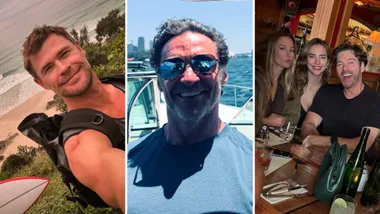A new biography has detailed the conversation between Prince Charles and Prince Harry addressing rumours that James Hewitt is Harry’s real father.
The People’s Prince, by Chris Hutchins, gives an insight into how Prince Charles dealt with the constant rumours surrounding his son’s conception, Harry’s decision to fight on the frontline in Afghanistan, and how James could have influenced this decision.
Chris explains that, as a young boy, Harry was “awestruck” by cavalry officer James, and that he and William would crowd around “Mummy’s friend” to talk about their own adventures. The younger prince was “inconsolable” when James was deployed abroad.
James came back into Harry’s life in 2002, when he decided to address the constant speculation that he was Harry’s father.
“I can absolutely assure you that I am not,” he said. “Admittedly, the colour of his hair is similar to mine and people say we look alike. I have never encouraged these comparisons and although I was with Diana for a long time, I must state once and for all that I am not Harry’s father.”
Chris says Prince Charles had already addressed the rumours with Harry before James decided to “sell” his story.
“Aware of how cruel gossip can be, he had summoned his younger son for a heart-to-heart meeting in the summer before he started at Eton. He warned him that he would hear such rumours, and assured him they were not true,” Chris writes.
“Harry listened to his father’s difficult speech without interrupting. He had always looked up to Hewitt, a war hero, a real-life tank commander in the First Gulf War and an immensely likeable man. Hewitt had been a true mentor to the boy, and Charles knew it.”
It was one of the hardest moments in both Harry and Charles’ lives, Chris says.
The book, which is due to be released in the UK on April 25, explains Harry’s choice to leave palace life and join the British Armed Forces in Afghanistan. While his family enjoyed Christmas lunch at Sandringham, the Queen’s Norfolk estate, Harry had arrived at one of the most dangerous parts of war-torn Afghanistan, where he lived in a cell-like room.
“We couldn’t believe it when he arrived,” says Lt Colonel Bill Connor, who spent time with Harry.
“There was no special security detail, no SAS. He came in like a regular soldier and that’s how he remained. This was a prince, the third in line to the British throne, yet he made it known that he wanted to be treated just as the junior officer he was.”
In the book, Chris speculates that Harry would not have minded missing a royal Christmas, saying that he is “as lukewarm as his mother Diana always was about spending Christmas at the royal Norfolk estate”.
He goes on to say that a psychiatrist who once treated Princess Diana, believes Harry’s career choice is a direct reaction to his royal background.
“Harry’s insistence on going to war and living under dangerous and uncomfortable conditions in Afghanistan speaks volumes about wanting to gain experience outside his upbringing,” the psychiatrist said.
Lance Corporal Frankie O’Leary agrees: “To be honest, I think he was bored with the way the royals live, and what they expect the world to provide for them.”
“He’s one of those officers you can talk to — he’s laid-back and chilled out.
“Once a job needs doing, he doesn’t shout and scream at you, he just asks you to do it,” O’Leary says. “It just makes you want to work for the man, so you get the job done. That’s the way he worked.”










